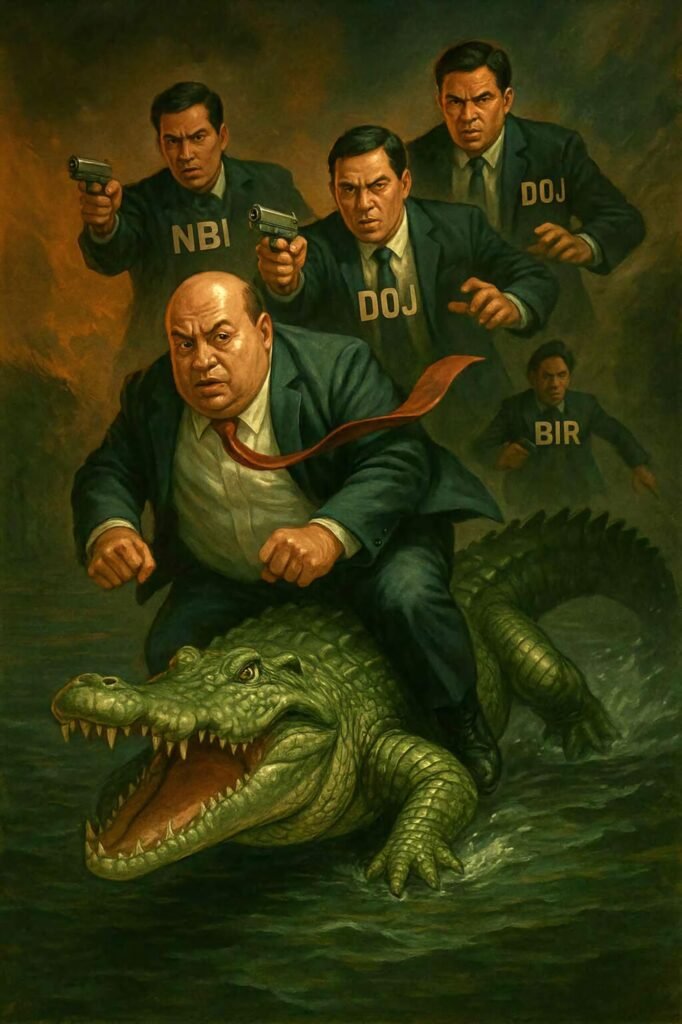Lining up corrupt officials and their families before a firing squad in Rizal Park may sound like the ultimate deterrent. The fantasy is tempting: to see the plunderers of public wealth—congressmen, governors, and their socialite wives—facing the harshest justice under the blazing sun. But this is a democracy, and one that has abolished the death penalty under the moral weight of Catholicism. Such medieval scenes will never unfold in this lifetime.
So what then? If executions are out of the question, does this nation simply resign itself to being looted generation after generation?
The Philippines prides itself on having institutions modeled after the United States and other Western democracies. On paper, we are not without tools. The U.S. has long perfected the art of dismantling crime syndicates and cartels—not with bullets, but with financial forensics. The FBI, the IRS, the Secret Service: these agencies cornered mob bosses not through their body counts but by following their money. Paper trails, wire transfers, lifestyle audits—each transaction becomes a strand of rope tightening around the guilty.
They succeeded because of two things: strong whistleblower protections and technical capability. American law empowers insiders to testify without being destroyed, and it equips investigators with the resources to parse billions in data. Anti-money laundering laws, tax codes, and relentless audits give prosecutors teeth sharp enough to pierce the thickest armor of political patronage.
The Philippines has its own alphabet soup—NBI, BIR, AMLC. But the difference is not in acronyms, it is in will and capacity. Financial corruption cases are rarely about mystery. They are about diligence. A politician who enters office with P1 million and exits a term later with P30 to P50 million has only one plausible explanation: kickbacks. No government salary—P100,000 to P300,000 a month—legitimately multiplies wealth thirtyfold in three years unless padded with the SOP of every project bid out.
The tools exist. Every hotel stay, credit card swipe, foreign wire transfer, and real estate acquisition leaves an electronic scar. In the era of Big Data and artificial intelligence, the ability to track every peso is not science fiction; it is law enforcement’s duty. What is missing is an institutional culture of fear—the kind that the FBI and IRS instill in the United States, where even the powerful shiver at the thought of an audit.
If this nation truly wants to curb corruption, it must not fantasize about firing squads. It must invest in forensic institutions—an NBI and BIR with the strength, independence, and mandate to prosecute relentlessly. It must build a DOJ that bites, not one that negotiates.
The day a Philippine lawmaker trembles not before an election loss but before an unrelenting lifestyle check is the day we finally begin to win this war.
Philippines #Corruption #GoodGovernance #Accountability #Justice #AntiCorruption #FBI #IRS #NBI #BIR #AMLC #FinancialForensics #BigData #MoneyLaundering #TaxEvasion #Whistleblower #Transparency #RuleOfLaw #Democracy #Pulitzer




